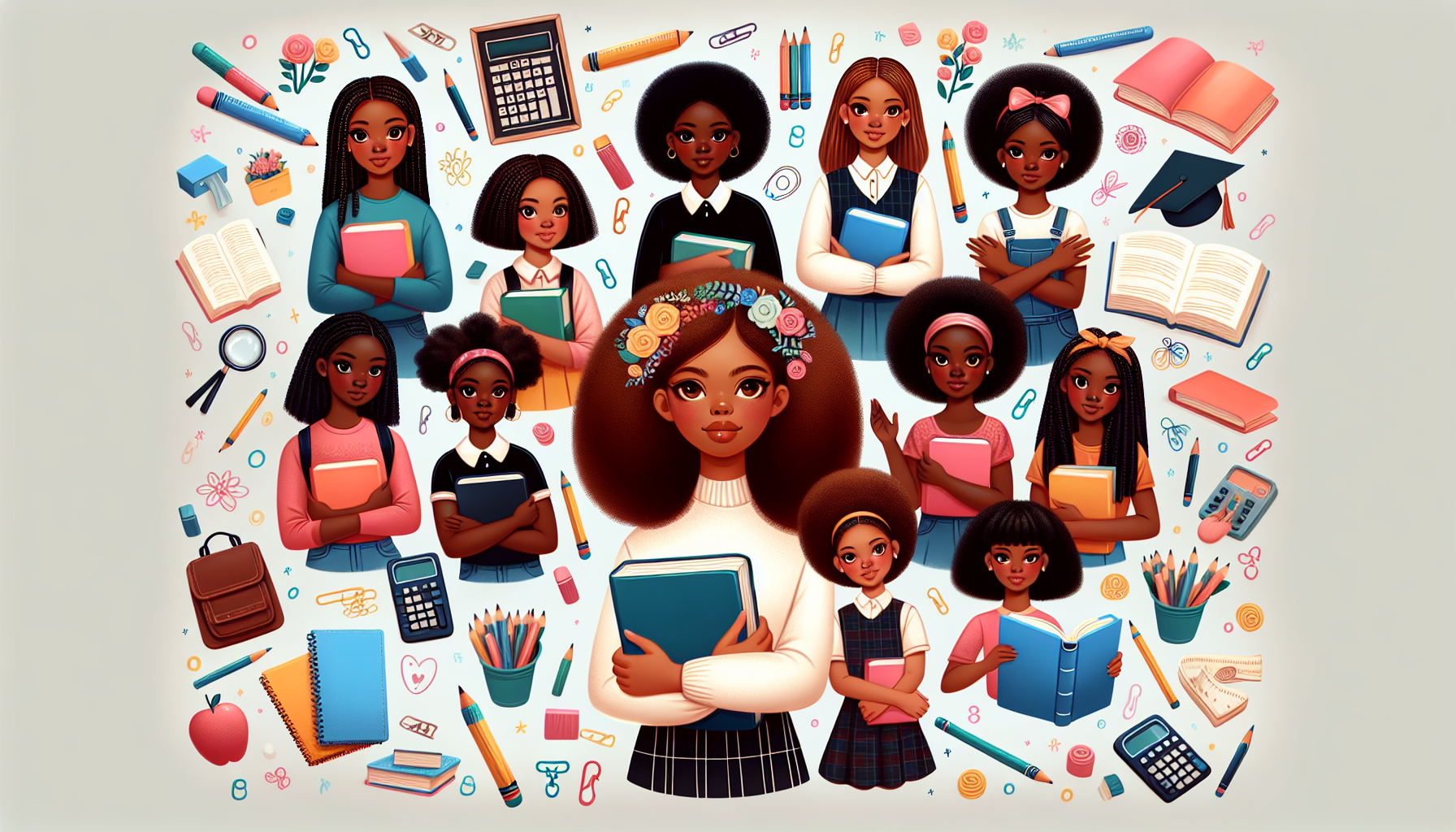Introduction: The State of Education for African American Female Students
The landscape of education has long been fraught with disparities, especially for African American young women. Our educational systems are facing a crisis, one that affects the nurturing of talent and the cultivation of future leaders among African American girls. As we delve into the matter, it’s essential to recognize the immense potential that lies within these young scholars and the dire need for systemic changes to better empower and support their academic journeys.
Historical Context: Understanding the Roots of Academic Disparity
To fathom the current plight of African American female students, it’s critical to behold the historical underpinnings that have shaped their educational experience. Institutional barriers, such as segregation and unequal access to resources, have left an indelible mark, contributing to a persistent gap in academic achievement. Although we have witnessed progress that has chipped away at these inequalities, the echoes of a segregated education system still resound in today’s schools.
Identifying the Challenges Faced by Young Black Women in Education
Racial and Gender Stereotypes
Our discourse would be incomplete without acknowledging the insidious stereotypes that plague our classrooms. Black girls often find themselves at the crossroads of racial and gender biases, which can manifest in lower teacher expectations and misinterpretations of their behaviors, sometimes leading to disproportionate disciplinary actions.
Lack of Representation and Resources
Another obstacle is the dearth of representation in the curriculum and among educational staff. When young Black women do not see themselves reflected in their educators or the educational material, the impact is profound, possibly stifling their engagement and limiting their aspirations.
Economic Inequality
Economic barriers must also be part of our conversation, as many African American students confront the repercussions of poverty, which can include limited access to essential learning tools and extracurricular opportunities that enrich the educational experience.
Shifting the Perspective: Celebrating Strengths and Shaping Solutions
While it’s crucial to recognize the hurdles, it’s equally vital to celebrate the resilience, intelligence, and creativity that young Black women bring to the classroom. These inherent strengths are assets that can be fostered with the right supports in place.
Call to Action: It’s Time for Educational Reform
The path forward begins with a call to reform—an appeal for educational practices and policies that are steeped in equity and inclusivity. It’s about redefining what a supportive academic environment looks like for African American girls.
Strategic Approaches to Supporting African American Female Scholars
Implementing Inclusive Curriculums
We start by advocating for curriculums that are inclusive, ones that acknowledge and highlight the contributions of African Americans throughout history. This effort ensures that students find relevance and inspiration in their studies.
Mentorship Programs and Role Models
Another pivotal strategy is to establish mentorship programs that connect young Black women with role models who can guide, encourage, and ignite their ambitions. Whether through school initiatives or community programs, mentorship has the power to transform.
Addressing Economic Disparities
To bridge the economic divide, schools must seek creative solutions to provide resources and opportunities to those who might otherwise be deprived of them. From providing advanced technology in classrooms to sponsoring extracurricular programs, every effort counts.
In Conclusion: A Call for Enduring Commitment
Taking on the challenge of supporting young Black women in education is not a one-time endeavor—it requires an enduring commitment. As a society, we must pledge to uplift and empower these students consistently and consciously. The potential for growth and excellence in African American female students is boundless, and it is our collective responsibility to cultivate an environment where this potential can be fully realized.
Additional Resources
- Local and National Organizations Supporting African American Education
- Scholarship Opportunities for Black Female Students
- Educational Equity Advocacy Groups
